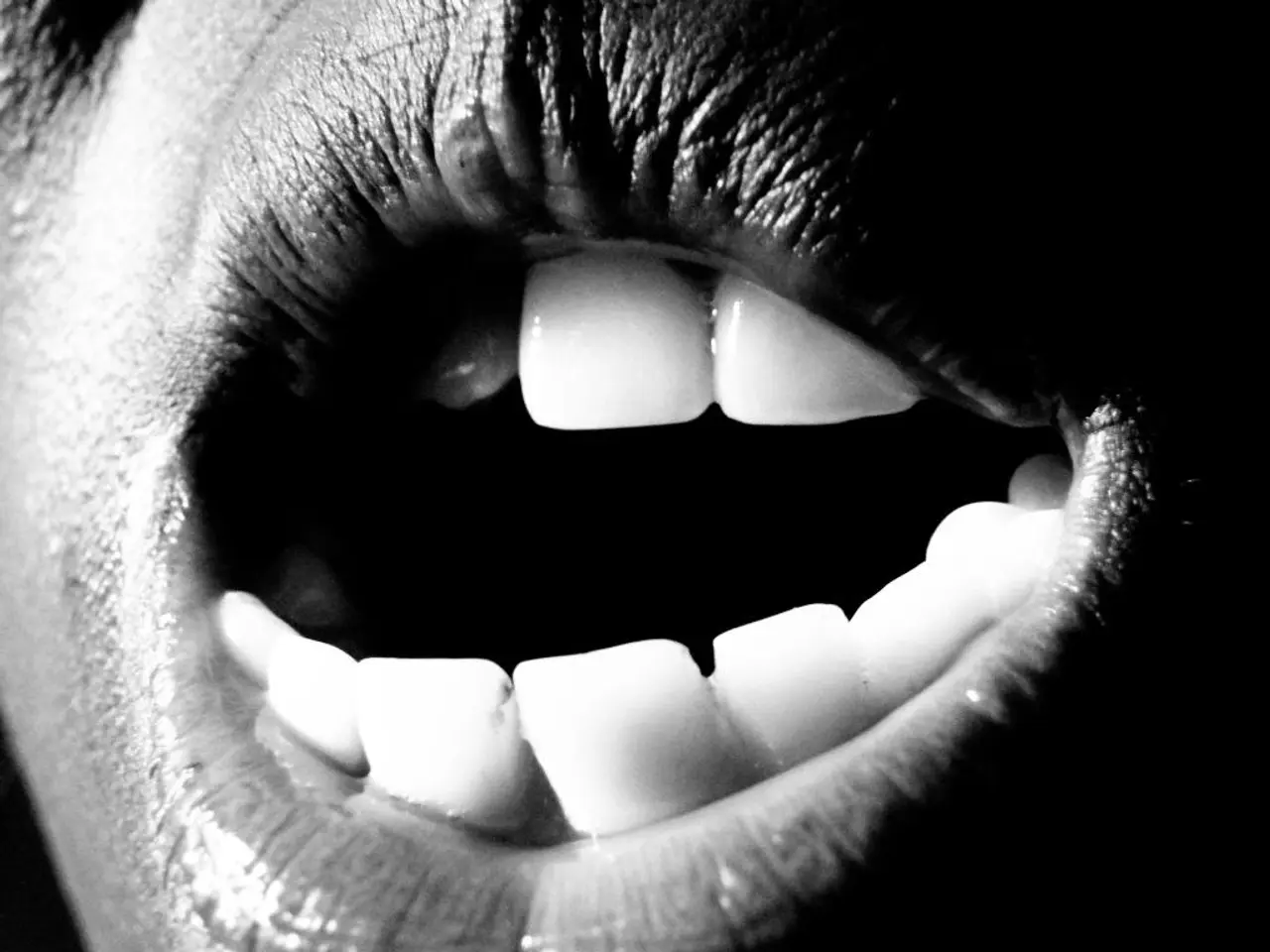Mouth Discomfort: Root Causes, Signs, and Remedies
Jaw pain can be a troublesome and persistent issue for many individuals, causing discomfort and affecting daily activities. This article aims to shed light on the various causes of jaw pain, the available treatment options, and preventive measures to maintain oral health.
Jaw pain can stem from a variety of sources, including Temporomandibular Joint Disorder (TMJ or TMD), bruxism (teeth grinding and clenching), muscle tightness and overuse, dental problems, arthritis, trauma, and other factors such as stress, allergies, poor posture, and lifestyle choices.
One of the primary causes of jaw pain is TMJ disorders, which involve problems with the jaw joint and surrounding muscles. Bruxism, a condition characterised by teeth grinding and clenching, often linked to stress, can also lead to muscle strain and joint stress, resulting in pain and stiffness in the jaw.
Muscle tightness and overuse due to excessive chewing, stress, or poor posture can cause pain that worsens with movement. Dental problems like infections, deep cavities, cracked teeth, or gum infections can cause localised jaw pain, often on one side. Arthritis, both degenerative and inflammatory, can affect the temporomandibular joint, leading to chronic pain and stiffness. Trauma or injury to the jaw or face can also result in persistent pain due to damage to bones, ligaments, or muscles.
In addressing jaw pain, treatment generally follows a conservative, stepwise approach before considering surgery. Conservative treatments include pain relief through nonsteroidal anti-inflammatory drugs (NSAIDs), physical therapy such as soft tissue massage, chiropractic adjustments, and physiotherapy exercises, stress management, and lifestyle modifications like avoiding hard, chewy foods, maintaining good posture, and using mouth guards to prevent teeth grinding at night. Alternative therapies, such as acupuncture, may also help alleviate symptoms.
For cases that do not improve with conservative care, more advanced treatments like injections, orthodontic correction, or surgery may be considered. It is essential to consult a healthcare professional for personalised treatment recommendations.
Preventive measures for jaw pain include eating soft or liquid foods, avoiding eating crunchy or chewy foods, taking small bites of food, seeking regular dental care, reducing stress, massaging the jaw area, using a mouthguard to stop the teeth from grinding together, adopting the correct posture, and not carrying a heavy bag for too long on one shoulder.
Individuals experiencing jaw pain should seek medical attention when home remedies do not improve jaw pain, jaw pain interferes with their daily routine, there is a change in the way the jaw moves or the teeth line up, the jaw starts making a clicking or popping sound when moving, pain occurs in the neck or upper back, they have eye pain, vision changes, or headaches, tinnitus or ringing in the ears occurs alongside jaw pain, they have dental problems, such as broken teeth, there is swelling that could be a sign of infection, they have a fever, or they have any concerns about their jaw pain.
Untreated jaw pain can lead to complications, including dental complications, surgical complications, infections, ongoing pain, emotional distress, loss of appetite due to pain or difficulty chewing and swallowing. It is crucial to address jaw pain promptly to prevent further issues and maintain overall oral health.
- Aq individual might experience jaw pain due to Temporomandibular Joint Disorder (TMD) or sclerosis.
- In some cases, nsclc or respiratory conditions may cause jaw pain, often due to discomfort or tension in the neck and jaw muscles.
- Bipolar individuals might experience jaw pain as a symptom of their mental-health condition, potentially due to stress or teeth grinding (bruxism).
- With chronic diseases like diabetes or cancer, jaw pain could be a symptom, making it necessary to consult a medical professional.
- Eczema, a skin-condition, might not directly cause jaw pain, but the itch and scratching might lead to dentalpain or jaw strain over time.
- Depression can exacerbate jaw pain as it may interfere with taking care of one's dental health, and a victim of chronic pain might experience depression.
- Individuals with multiple medical-conditions, such as arthritis or autoimmune-disorders, may have higher chances of experiencing jaw pain.
- Predictive science can assist in understanding the extent of jaw pain and its root causes, allowing for better treatments and preventive measures.
- To maintain workplace-wellness, employers can invest in office ergonomics and workplace-wellness programs focused on good posture, nutrition, and fitness-and-exercise to minimize jaw pain.
- People with medical-conditions like digestive-health or eye-health issues might experience jaw pain due to side-effects of medications or complications related to their conditions.
- Neurological-disorders, such as multiple sclerosis, stroke, or Parkinson's disease, can lead to jaw pain due to nerve damage or muscle weakness.
- In cases of hearing loss or hearing problems, individuals might not initially associate this condition with jaw pain, yet it can still be a related symptom.
- Therapies-and-treatments, such as cognitive-behavioral therapy, biofeedback, or relaxation techniques, could help alleviate both dentalpain and mental-health issues contributing to jaw pain.
- Maintaining good overall health-and-wellness, which includes skin-care, proper nutrition, cardiovascular-health, and general medical check-ups, can help prevent the onset of various medical-conditions that could potentially result in jaw pain.




